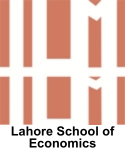Governance and Political Economy
Political Distortions and Production Responses: Evidence from Wheat Procurement in Pakistan
Project members:
Sadia Hussain, Lahore School of Economics
Ignacio Rodriguez Hurtado, Duke University and
Kate Vyborny, Duke University
Governments frequently intervene in markets with the stated purpose of improving the welfare of the poor. Existing studies document the benefits of redistribution created through government interventions may be vulnerable to capture by elite or politically strategic groups, allowing regressive redistribution. However, in addition to simply redistributive effects, political influences on government distribution can also distort productive decisions, leading to deadweight loss. We study the political economy of government procurement of wheat in Pakistan. Wheat makes up 14 percent of Pakistan’s value added in agriculture and 3 percent of GDP (Ministry of Finance, 2009). The wheat market is the most heavily regulated agricultural market in the country; the government buys between a fifth and a third of all wheat produced. The FAO estimates that the cost of this subsidy amounts to USD 248 to 289 million per year (Food Agricultural Organization, 2013). We study political influences on the procurement of wheat using Punjab administrative wheat procurement data (Punjab Food Department, 2002-2010) and electoral data from Fair et al., 2017. Using a panel fixed effects approach, we document that wheat procurement increases in governing party constituencies. We then examine the responses of farming households using three rounds of the Pakistan Panel Household Survey (PPHS) (2001, 2004 and 2010). We document that when an MPA from the governing party is elected, households in government constituencies report receiving higher prices for their wheat. We document households respond by increasing the proportion of their land dedicated to planting wheat and selling more wheat in the market.


